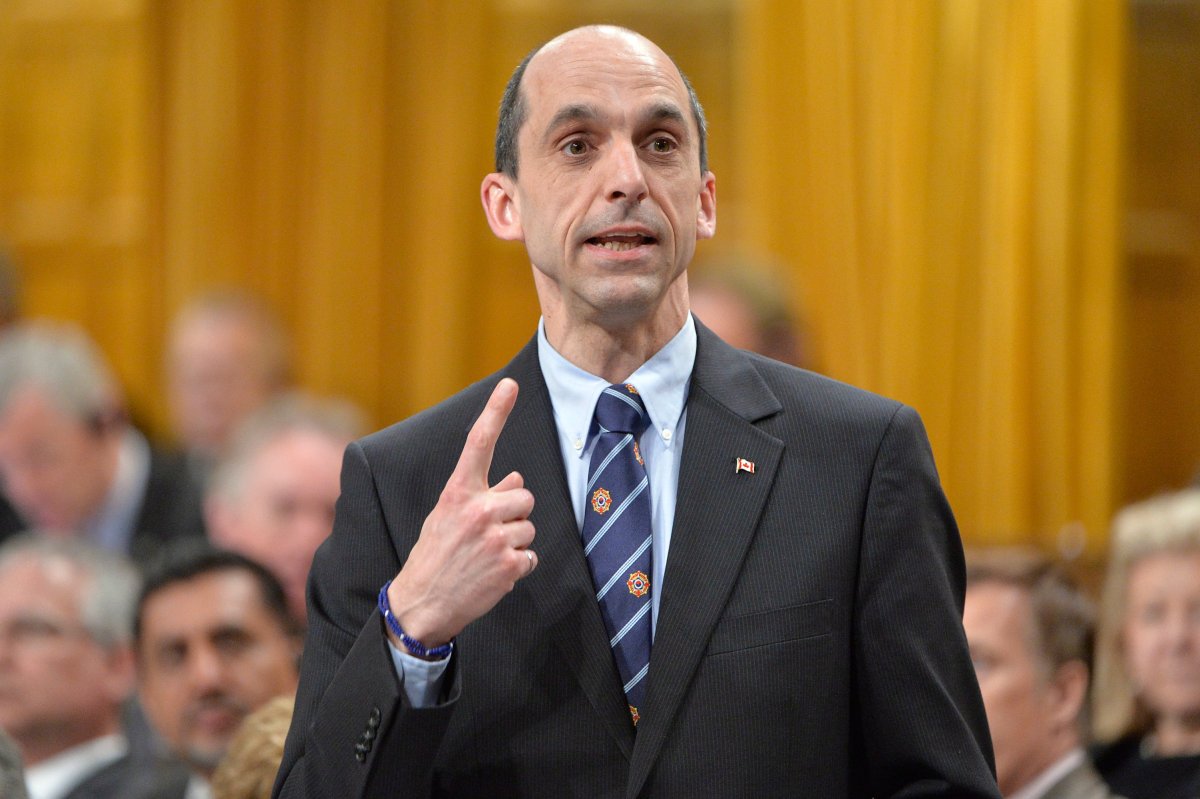A Global News investigation revealing the prevalence of death and violence in psychiatric hospitals underscores the need to act on the mental illness crisis in Canada’s prisons, opposition critics say.

READ MORE: Canada’s psychiatric prisons have highest death, assault rates
But even as Public Safety Minister Steven Blaney unveiled a pilot project meant to tackle the problem, an Auditor-General’s report found the millions Ottawa is spending to accommodate its growing inmate population doesn’t create more health care space to accommodate the people already crowding its prisons. The report also found the department doesn’t even know how to calculate how much more health care space it would need.
(According to the report, even with all Corrections Canada’s ongoing expansions, the system can barely keep up with a growing population, and will be once again overwhelmed a few years from now)a
READ MORE: Conservatives ‘won’t be afraid’ to double-bunk in Canada’s prisons
And while both the NDP’s Randall Garrison and the Liberals’ Wayne Easter agree Blaney’s strategy unveiled last week is a good step forward, it’s “too little, too late,” Garrison says.
“Even though the idea itself is a good one, it should have been implemented a long time ago. … What we’ve had is a government that’s really delayed the actions necessary to improve the situation.”
- What is a halal mortgage? How interest-free home financing works in Canada
- Capital gains changes are ‘really fair,’ Freeland says, as doctors cry foul
- Ontario doctors offer solutions to help address shortage of family physicians
- Canada will take bigger economic hit than U.S. if Trump wins election: report
Global News’s investigation revealed more inmates die and are assaulted in the country’s psychiatric prisons than any other federal correctional facility. Saskatoon’s Regional Psychiatric Centre, where Kinew James died and where Ashley Smith spent some of her time behind bars, boasts the most deaths and assaults.
Inmates at Ontario’s now-shuttered Regional Treatment Centre were 260% more likely to die than their counterparts at the now-defunct Kingston Penitentiary next door.
Last Thursday Blaney announced Ottawa’s planning a two-bed pilot project at the province’s St. Lawrence Valley Correctional Centre’s Secure Treatment Unit. The specialized facility’s been lobbying federal and provincial governments for years to back a facility for women inmates with serious mental illness similar to the one now in operation for men.
The announcement was also part of Ottawa’s response to dozens of recommendations that came out of a coroner’s inquest into Ashley Smith‘s death. The rest are due in December.
Blaney said his department is “very well aware that inmates with mental health issues are more vulnerable to incidents in our facilities.
But Auditor-General Michael Ferguson found that Corrections Canada’s ongoing expansion to accommodate significant increases in inmate populations doesn’t account for the added burden to already stretched health-care resources.Corrections “does not have up-to-date guidelines for determining how much health care space is needed in penitentiaries relative to capacity and populations,” Ferguson’s report reads. And even though, “during construction, CSC officials identified requirements for improvements to health care facilities at 21 of the 37 institutions being expanded, but we noted that no additions to health care facilities were included in the expansions.”
Easter, who served as former Prime Minister Jean Chretien’s Solicitor-General, figures he’s been inside virtually all Canada’s federal prisons. He’s seen the challenges in dealing with seriously ill inmates and knows leaving their care to correctional officers alone “leads to more problems.
“… I believe the government’s current attitude to Correctional Services Canada and their emphasis on punishment over rehabilitation, Canada is going to pay a heavy price 15 years from now.”
The NDP’s Garrison also doubts Ottawa’s ability to follow through on meaningful changes to the system when it’s in the midst of multi-year $300-million cuts even as it plans expansions. “It doesn’t add up,” he said.“If someone breaks their arm in prison, we don’t expect the guards to fix the arm: We actually send them out to get specialized treatment. Mental illness should be no different.”





Comments